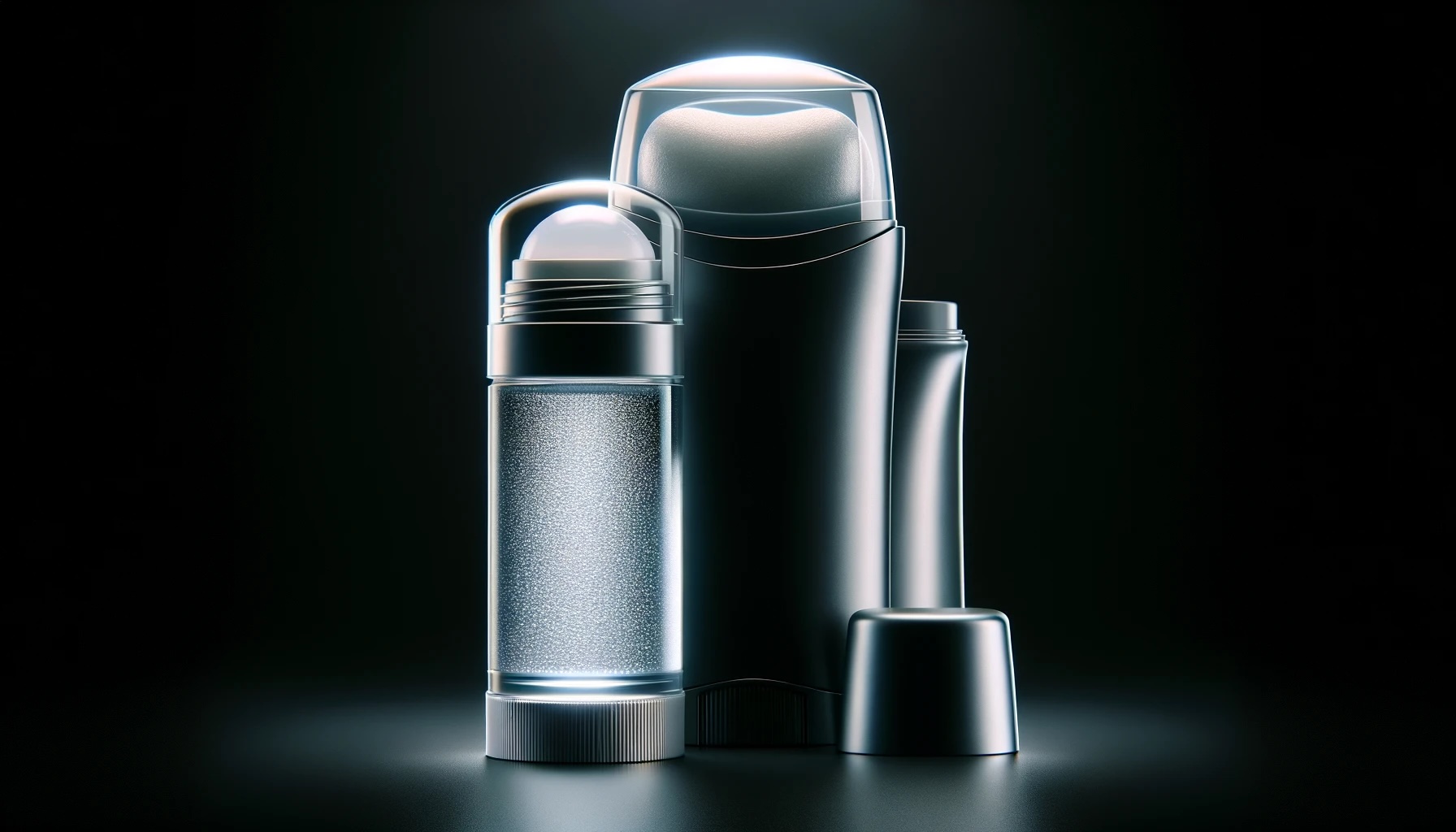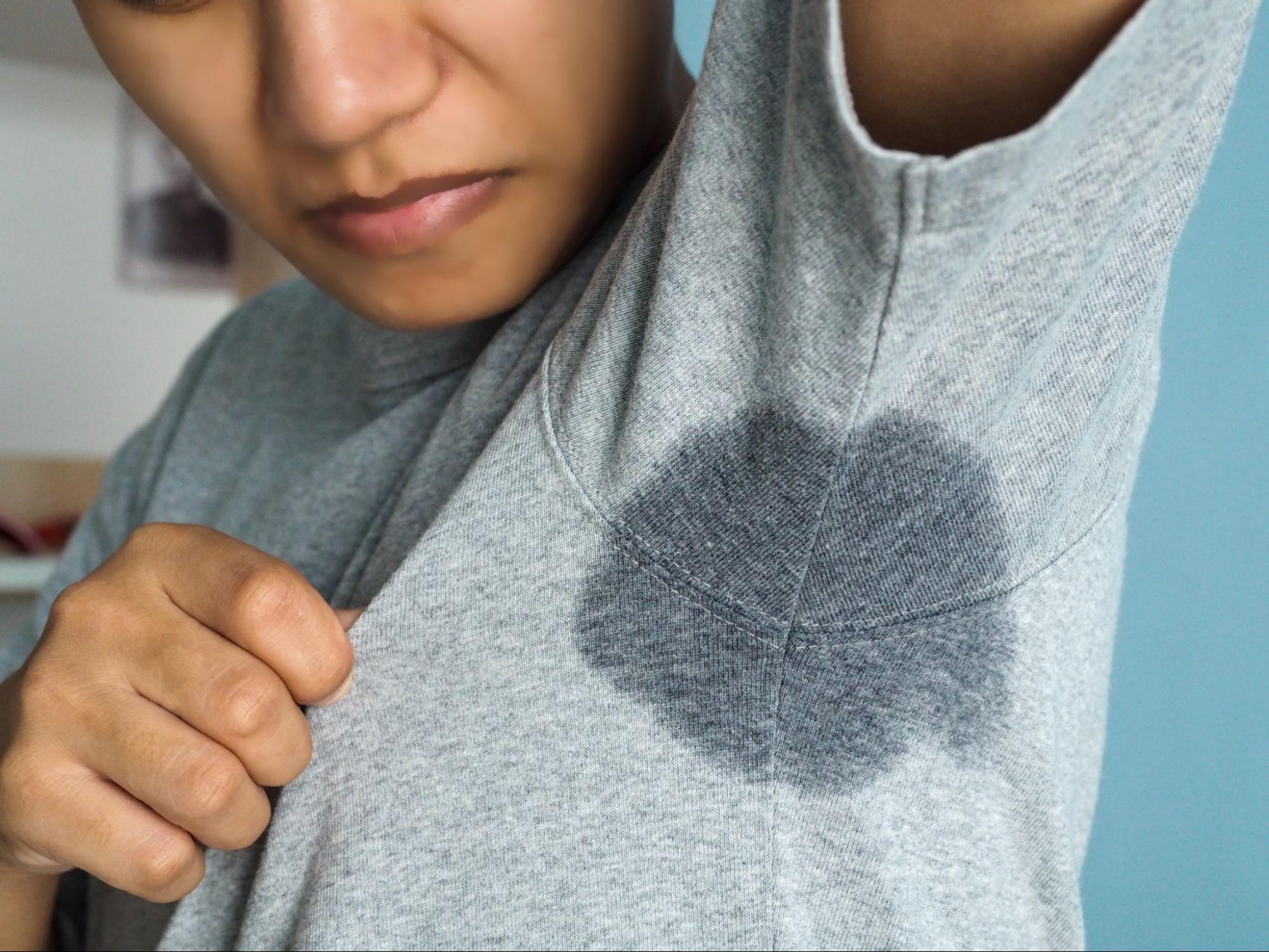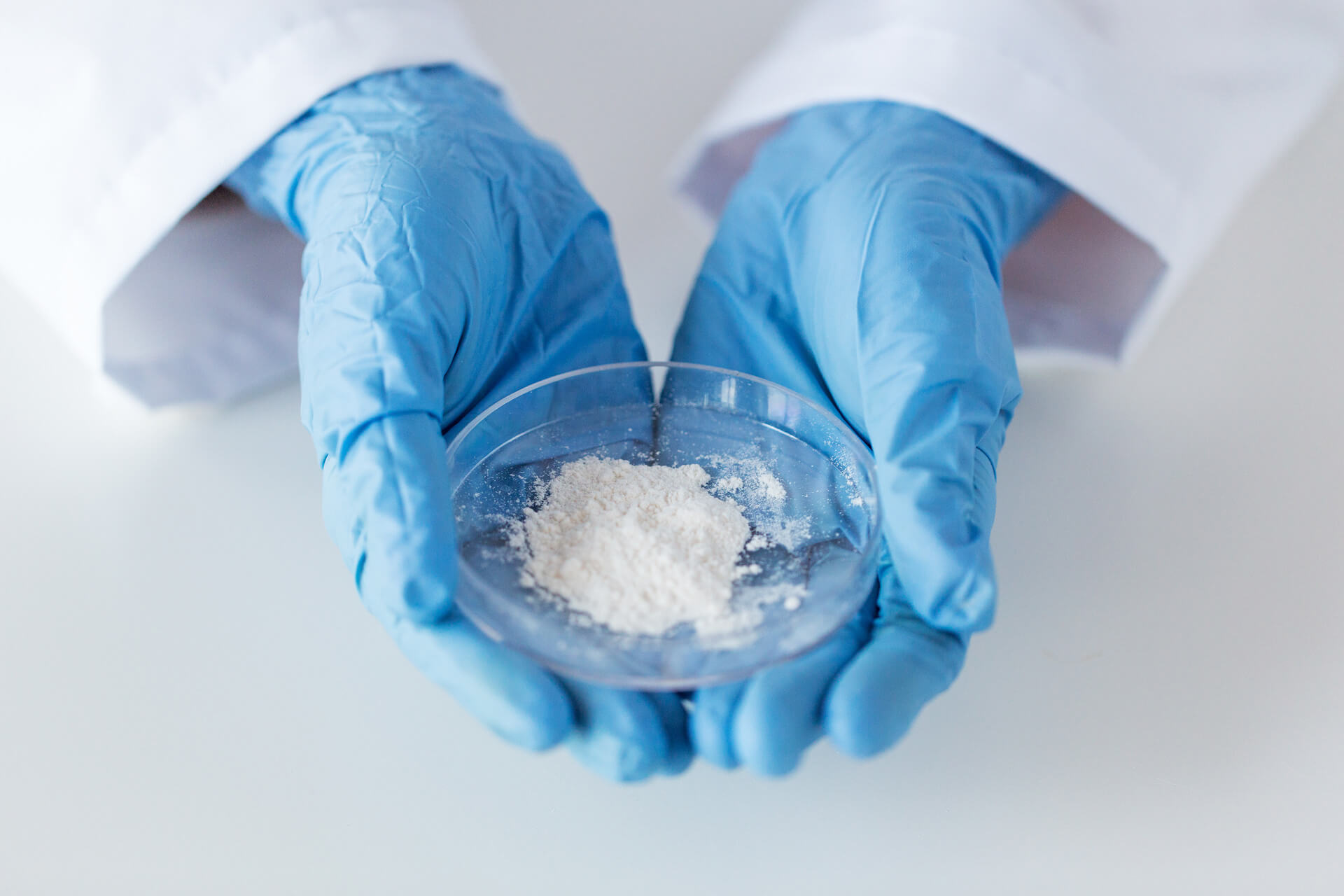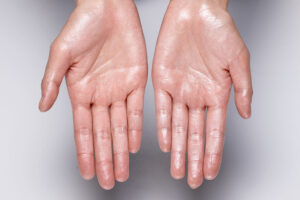Table of Contents
You’ve heard the rumors. If you use (or have considered using) an antiperspirant containing aluminum chloride, you’re probably aware of the controversies. Is antiperspirant bad? Does it really cause cancer, alzheimer’s and kidney problems? Let’s take a few moments and separate fact from fiction.
4 Popular myths about aluminum-based antiperspirants:
- Myth #1 Antiperspirant causes cancer
- Myth #2 Antiperspirant causes Alzheimer’s Disease
- Myth #3 Antiperspirant causes kidney problems
- Myth #4 Antiperspirant prevents the body from releasing toxins
In the age of “fake news” anybody can put out false information that snowballs into perceived reality. Just because it’s widely believed and accepted does not make it true. Information, true or false, travels at the speed of light in the age of the Internet. Once launched, no matter how well-intentioned, misinformation can take on a life of its own. It spreads like wildfire.
Aluminum chloride and aluminum chloride hexahydrate, the active ingredients in many underarm antiperspirants, continue to be maligned by multiple sources. Let’s answer the question posed by this article, “Is antiperspirant bad?” and get to the bottom of why some people may think that it is.
What is aluminum chloride and how does it work?
Aluminum chloride is one of a group of aluminum salts that also includes aluminum chloride hexahydrate, aluminum chlorohydrate and aluminum zirconium. When it’s partially neutralized, it’s used as the active ingredients in many antiperspirants. Aluminum chloride hexahydrate is the hydrated (water added) form of aluminum chloride. The International Hyperhidrosis Society notes that aluminum chloride has been used for over 80 years and has proven effective and non-toxic.
Aluminum salts work by combining with the water in your sweat to create a chemical reaction. A gel-like plug is formed and deposited in the treated sweat ducts. The plug forms a blockage that prevents sweat from reaching the skin’s surface.
Aluminum chloride’s effectiveness decreases over time and normal sweat function will return. Normal antiperspirants must be reapplied daily to renew the desired anti-sweat effect. Clinical strength antiperspirants like our Sweatblock towelettes can last up to 7 days before there is a need to reapply.
Antiperspirant vs. Deodorant
Perhaps there is another mini-myth or misconception we should debunk before moving on. Deodorants are not the same as antiperspirants. Deodorants can prevent body odor by killing bacteria, but they cannot prevent sweating. Natural deodorants containing essential oils may also inhibit bacteria growth and control odor, but they cannot prevent perspiration. Antiperspirants, on the other hand, may contain ingredients to control odor and kill bacteria, but they also contain an aluminum salt ingredient that acts to prevent sweating.
Now on to the myth-busting.
Does Antiperspirant cause cancer?
Breast cancer is the primary focus of this myth. The myth gained traction from the claims of flawed medical studies and from an anonymous email chain letter that made the global rounds in the early 1990s. The letter claimed that antiperspirants cause cancer.
The chain letter claims that preventing perspiration with the use of antiperspirants traps toxic substances in the body that would otherwise be secreted through the sweat glands. These harmful substances then form cancers. Is antiperspirant bad? If this theory were true, the answer would be yes. But it’s not.
It has been repeatedly shown that sweating does not purge unwanted compounds from the body. Sweat is mostly electrolytes and water. Urination and liver function are responsible for eliminating most harmful or unwanted substances.
Statistics show that one in every eight women (16%) will develop breast cancer at some time in her life. Pointing the finger at aluminum chloride-based antiperspirants as a contributing cause is a serious accusation.
The apparent thinking used by the authors of these now disproved studies asserts that the chemicals in antiperspirants, including aluminum chloride, are absorbed through the skin in the underarms. They claim that nicks from shaving and small abrasions facilitate entry into the body. The studies further assert that these chemicals interact with DNA and lead to malignant mutations in cells. They also say that antiperspirants may interfere with the female hormone, estrogen, known for influencing how cancerous cells multiply.
These studies also point out that most breast cancers begin in the upper outer quadrant of the breast. This is the region closest to the armpit where antiperspirants are used. The flawed logic amounts to guilt by association, geography rather than biology.
“Why you would think that antiperspirant would somehow go upstream and get into your lymph nodes and then somehow get into the breast is unclear,” states Dr. Timothy J. Moynihan. Dr. Moynihan, an oncologist, serves as the Education Chair and consultant for the Division of Medical Oncology at the Mayo Clinic. “It doesn’t make sense other than the fact that it’s in the neighborhood.”
Moynihan concludes that lifestyle changes, including exercise and not smoking, are more important than worrying about antiperspirants. “Everyone worries about underarm antiperspirants,” he says, “but nobody quits smoking.”
Other reputable medical experts say that these so-called studies do not hold water. Ted S. Gansler, MD, MBA and Director of Medical Content for the American Cancer Society stated in an email interview, “There is no convincing evidence that antiperspirant or deodorant use increases cancer risk.”
Gansler goes on to say that many of the studies that claim antiperspirant is bad for you are inaccurate. A few of them found small amounts of antiperspirant compounds including aluminum salts and parabens in cancerous breast tissue, but that their presence does not prove any causal effect. He cited one carefully designed study that compared 793 healthy women with 813 survivors of breast cancer. No evidence that antiperspirants increase the risk of breast cancer was found.
According to the National Cancer Institute, a smaller 2006 study that included 54 women with breast cancer and 50 healthy women, found “no association” between the use of underarm antiperspirants and breast cancer risk.
Finally, this from the American Cancer Society. “There are no strong epidemiologic studies in the medical literature that link breast cancer risk and antiperspirant use, and very little scientific evidence to support this claim.”
Is antiperspirant bad in regards to causing cancer? NO.
Myth busted.
Does Antiperspirant cause Alzheimer’s Disease?
The myth that aluminum chloride in antiperspirants causes Alzheimer’s Disease dates back to the 1980s. At the time, a few studies found high levels of aluminum in the brains of people suffering from this debilitating disease. These studies ignited a firestorm of concern in the general public. Suddenly the use of everyday items like aluminum cans, aluminum foil, antacids, cooking utensils and antiperspirants were labeled as dangerous.
In later research, the findings of the earlier studies could not be replicated. The New York Times pointed out that, “Of all the studies that examined the rumor, at least one, in 1990, suggested a possible link. But the study, which compared the habits of 130 patients with the disease to those of a group of healthy subjects, had a serious flaw: It relied on surrogates to answer for the Alzheimer’s patients.”
Experts, such as William Theis, Vice President of Medical and Scientific Relations at the Alzheimer’s Association of Chicago also refuted the earlier conclusions. “One of the things that happens in Alzheimer’s brains is that they shrink. So you have accumulated a certain amount of aluminum in your brain, and as your brain shrinks, the concentration is going to appear high.”
As for aluminum in the brains of Alzheimer’s patients, researchers say that this is likely a result, not a cause, of Alzheimer’s. Aluminum is omnipresent and traces of the metal are found in everyone. In patients with Alzheimer’s, the dying cells are unable to eliminate toxins which may account for the higher levels of aluminum.
Heather M. Snyder, Ph.D., Senior Associate Director of Medical and Scientific Operations for the Alzheimer’s Association echoes the later findings and conclusions regarding aluminum in deodorant and antiperspirants. She says, “There was a lot of research that looked at the link between Alzheimer’s and aluminum, and there hasn’t been any definitive evidence to suggest there is a link.”
As with the false claim that aluminum chloride causes cancer, the rationale was that somehow the aluminum in antiperspirants, applied topically, somehow makes its way into the body. Not so states David Pariser, MD, Professor of Dermatology at Eastern Virginia Medical School and Past President of the American Academy of Dermatology. “The aluminum salts do not work as antiperspirants by being absorbed in the body. They work by forming a chemical reaction with the water in the sweat to form a physical plug… which is deposited in the sweat duct, producing a blockage in the areas that it’s applied. Even [with] nicks from shaving, the amount is so negligible that it doesn’t make a whole lot of scientific sense.”
The science is conclusive. There is no credible, science-based evidence that aluminum chloride used in antiperspirants causes Alzheimer’s Disease. The studies show that aluminum in antiperspirants is safe. Again, to the question, “Is antiperspirant bad?” the answer is NO.
Myth busted.
Does Antiperspirant cause kidney problems?
Is aluminum in antiperspirant bad for your kidneys? After all, the FDA requires a warning on the labeling of all antiperspirants containing any form of aluminum.
For healthy people whose kidneys function normally, the warning does not apply. They are able to process and eliminate aluminum efficiently. The warning is only cautionary for people who already suffer from serious or advanced kidney disease. It’s meant for those whose kidneys are functioning at 30% efficiency or less. It is intended to be overly cautious.
Concerns about aluminum in antiperspirants first surfaced some years ago. People undergoing dialysis for diseased kidneys were given a drug called aluminum hydroxide. It was prescribed to control high phosphorus levels in their blood.
Because their kidneys were not functioning or functioning at severely reduced levels, their bodies could not remove the aluminum hydroxide quickly enough. Researchers became concerned that patients with high levels of aluminum in their systems were more likely to develop dementia.
As a result of these concerns, the FDA mandated that antiperspirants carry this caveat: “Ask a doctor before use if you have kidney disease.”
The reality is that it’s almost impossible to absorb enough aluminum by way of the skin to damage the kidneys or any other part of the body. According to nephrologistLeslieSpry, MD, FACP, spokesperson for the National Kidney Foundation.”Unless you eat your stick or spray it into your mouth, your body can’t absorb that much aluminum.”
The overwhelming evidence demonstrates that aluminum chloride in antiperspirants does not cause kidney disease.
Is antiperspirant bad for our kidneys? If you don’t have kidney disease, a resounding NO. If you do, still, probably not.
Myth busted.
Does Antiperspirant prevent the body from releasing toxins?
Is antiperspirant bad for ridding the body of toxins? There’s bad news for those who believe sweating purges toxins.
Sweating out toxins is the real myth here.
Sweating is a bodily function designed to cool us down. If excessive sweating (hyperhidrosis) isn’t an issue, it does its job well. But, sweating does not eliminate toxins or waste products. It doesn’t matter how much time you spend in the sauna. As we pointed out earlier, that’s what the kidneys and liver are for. We can no more sweat out toxins than we could sweat bullets, as the saying goes.
As with some falsehoods, there is a grain of truth in this one. A very small grain. While sweat is mostly composed of water and electrolytes, it can contain trace amounts of various toxins. A new study published in the journal Environment International, shows that even if we do excrete environmental toxins out through our pores, the amounts are minuscule. Not enough to make a difference.
Joe Schwarcz is a chemist who directs McGill University’s Office for Science and Society. Its purpose is to debunk science myths. He says, “When you look at sweat, you can find many substances, [but] the presence of a chemical cannot be equated to the presence of risk.”
Pascal Imbeault is an exercise physiologist at the University of Ottawa in Canada. He recently led a recent study focused on pollutants that are stored in body fat. His study found that a person exercising at high intensity for 45 minutes could sweat a total of two liters a day, including normal, non-exercise induced sweat. All that sweat contains less than one-tenth of a nanogram of pollutants and toxicants.
Using an antiperspirant containing aluminum does not inhibit the body from excreting toxins by sweating. Sweating does a very poor job of that without any outside influence.
Do aluminum chloride based antiperspirants prevent your body from releasing toxins? Nope.
Myth busted.
The bottom line
Is antiperspirant bad? With the possibility of causing skin irritation for users with sensitive skin, the consensus answer is NO. There is no viable scientific evidence that aluminum chloride, or any aluminum salt compound used in antiperspirants, presents a threat to our health.
“These products can be used with high confidence of their safety. They’ve been used for many years, and there’s no evidence that suggests a problem,” states John Bailey, Ph.D., Chief Scientist with the Personal Care Products Council.
Antiperspirants have no measurable effect for elevating the risks of cancer, Alzheimer’s Disease, kidney disease of the body’s ability to rid itself of toxins.
So, why do the rumors persist? The Internet is a perfect vehicle for recycling old issues and raising questions that have already been answered. And, there are those who stand to profit from peddling misinformation. Self-interest over honesty. Sad but true. That’s the world we live in.
So, the next time the question comes up, “Is antiperspirant bad?” you’ll know the answer.
You might also like...

Antiperspirant vs Deodorant: What’s the Difference?
Table of Contents Did you know that deodorant and antiperspirant aren’t the same? It’s okay if you didn’t; most people

Looking for the Best Prescription-Strength Antiperspirant? Read This First!
Table of Contents When sweating reaches epic proportions, you need something more than pedestrian, store-shelf antiperspirants. You need a heavy

Aluminum Chloride : What is it? Can it Stop Sweating? Is it Safe?
Table of Contents Do you suffer from excessive sweating? Hyperhidrosis, the official medical term for profuse sweating, affects millions here in
















